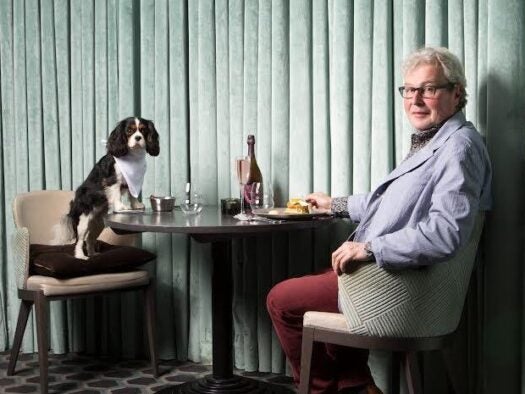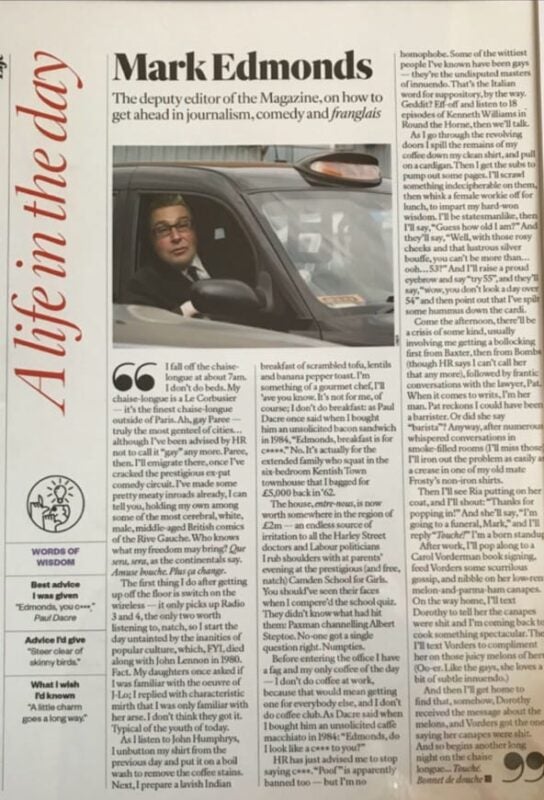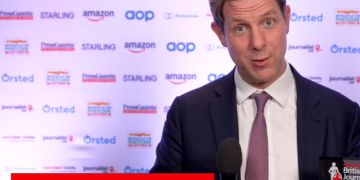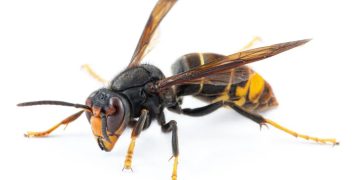
Shortly after a terminal diagnosis in April, the journalist Mark Edmonds packed a small car with treats for his beloved dog Roxy, and boxes of cancer drugs for himself, and drove 1,400 miles to southern Italy, writes Bill Akass.
He had booked a villa in Puglia for a whole month and hosted a rotating group of friends and family including many of his former colleagues from newspapers including the Sunday Times Magazine where he had been deputy editor.
The trip was cut short because of his failing health. But Edmonds continued to arrange raucous lunches and get-togethers between gruelling bouts of chemotherapy until shortly before he died, aged 63, on Monday night, peacefully and with friends and family at his bedside, in St John’s Hospice in north London.
Even in his hospital bed, groggy from painkillers, Edmonds cracked jokes, mostly at the expense of friends who had stayed loyal to him over the years despite – and maybe because of – his caustic humour.
Born David Mark Edmonds, but preferring to use his middle name, Edmonds began his career on the Hampstead and Highgate Express after journalism training at the London College of Printing. His first job included restaurant reviews, sparking a lifelong culinary passion.
Around this time Edmonds also wrote a well-received book, Inside Soho, about an area he loved especially for the personalities who later congregated at the Groucho club where he became a member.
He moved into feature writing, hard investigative reporting came later, and worked his way up from She magazine and Observer supplements to executive positions on the Daily Telegraph (property editor 1997-1999), the Financial Times (executive editor 1999-2000) and the Daily Mail as assistant features editor from 2000-2004.
There was also a brief foray into digital publishing for a property website before the dotcom crash.
In 2004, he became associate editor and later deputy of the Sunday Times Magazine where he stayed until 2016 with a team of top designers, photographers and writers including AA Gill, whose obituary he wrote.
Edmonds was credited with launching the Homes supplement, an editorial as well as commercial success. He also helped organise and curate an exhibition at the Saatchi Gallery marking the 50th anniversary of the Sunday Times Magazine.
Edmonds’ management style was probably the inspiration for many HR case histories. But junior staff at the receiving end of his admonishments later thanked him for moulding them into professional shape.
AA Gill called him the ‘cab driver’
Edmonds was proud of his modest upbringing in Hounslow and that he was educated at a grammar school unlike many of his more privileged colleagues.
AA Gill called him the “cab driver” – a putdown he took in good heart, but it carried a tinge of snobbery.
The Sunday Times writer Camilla Long described him “as a really, really good editor. Focussed, inquiring, forensic – not easily amused, but also incredibly amused by all of it, and therefore had the perfect eye. His praise was hard won, but when it came, it was delivered in brilliant, Markish style, as if to say – now, don’t get ahead of yourself, don’t be a diva.”
After separation from his long-term partner Dorothy Wade, a psychologist and journalist with whom he had two daughters, and two stepchildren, Edmonds rebuilt his life as a freelance journalist. He was versatile and reliable on a huge range of assignments from whimsical soft features to hard-nosed news investigations.
Bravely, Edmonds – who previously contributed scripts for the topical News Review sketch at the Canal Cafe comedy club in Maida Vale – tried his hand at stand-up, not altogether successfully. Dressed in a tuxedo, he stood in front of an audience in Paris and demanded to know: “So why isn’t there a Place de la Collaboration?”
Edmonds initiated, wrote and presented a three-part podcast: Who killed the Prince of Soho?, about the mysterious death of Bernie Katz, the infamous manager at the Groucho club during the Britpop era, recording interviews with close friends and celebrities including Stephen Fry.
In 2021, Edmonds went to Ireland for the Daily Mail to confront dealers involved in the illegal puppy trade which had boomed during lockdown. Edmonds was besotted with his own King Charles Spaniel Roxy, who travelled often with him on assignments across Europe.
Earlier this year, desperately ill but optimistic about recovery, Edmonds assembled a comprehensive 3,000-word piece for the Sunday Times Magazine on the legal battle over Amy Winehouse’s estate. At the time, rival journalists were preparing backgrounders on the new Winehouse movie Back to Black but Edmonds was the only one to secure interviews with all the main parties on both sides, navigating a minefield of PRs and lawyers between draining visits to the Cancer Centre at University College London Hospital.
It was the last major piece for publication but he continued to entertain, console and occasionally chide his vast diaspora of friends and contacts via messaging apps, email and in person at social gatherings. His Whatsapp timeline was filled with a stream of personal tributes he was able to read – or were read to him – before he died.
Mark Edmonds: Irascible but kind, with a keen sense of fun
Mark Edmonds was a true hack of the Old School, writes former Sunday Times colleague Eleanor Mills. A brilliant copy editor with an intuitive knack for storytelling and a gift for writing headlines. He was a firm believer in a long and liquid lunch. Behind his irascible manner was a huge and kind heart. He had a keen sense of fun and was an eagle-eyed master of copy.
He was also a huge encourager of talent, who nurtured a posse of what he called “young uns” in his own idiosyncratic, sometimes terrifying, way. One of them, Sophie Haydock, remembered being sent an email by him with the subject line: “Bollocking”. It read; “Can you pop down please?” Edmonds was so proud of that email he had it framed and put it in his downstairs loo.
Mark Edmonds left the Sunday Times Magazine today after 35 years in journalism. I’ll remember him fondly pic.twitter.com/m0J7ERCMyK
— Sophie Haydock (@SophieHaydock) April 8, 2016
Another one of his proteges, the writer Katie Glass, said: “I met him 15 years ago when I was one of his ‘young uns’. He played up being a curmudgeonly sexist with outrageous nicknames for the women he worked with and endless stories about Paul Dacre’s ‘vagina monologues’. He’d guffaw as he told me my features were ‘shit’. But he was also very funny and kind and a thrilling connection to an old Fleet Street I never got to see. When he finally said a feature I wrote was ‘okay’ it was like winning a press award.”
His death at only 63 from liver and pancreatic cancer – what AA Gill whom Mark edited for many years at The Sunday Times Magazine termed ‘the full English’ – was marked with huge sadness by those who knew him and huge hilarity on a mates Whatsapp group where some of his many bon mots were celebrated.
I was lucky enough to go and see him a few days before his death. Illness had not dulled his wit or his love of talking about the “old days”. He chuckled through his oxygen mask as he reminisced about being summoned in with a bunch of other hacks by Telegraph managing editor Jeremy Deedes back in the day for a “serious chat about expenses”.
“Chaps,” said Deedes. “We’ve really got to cut back. It’s fine to take a black cab to the pub but you can’t just leave them outside with the meter running anymore.”
I first met Mark in my early 20s. He’d take me out to All Bar One for fish and chips, treacle tart and lashings of red. He always called me “Bombs” – short for “Bouncing Bombs” which what he said I reminded him of as I walked across the Telegraph office. But beneath the banter and ornery manner he was kind and shrewd with a huge gift for friendship.
Journalism was his life, he revelled in a well-turned tale, particularly his own. “I loved his enjoyment of his own ‘gags’”, remembered Matt Curtis who worked with Mark as design editor of the Sunday Times Magazine. “However much he made me smile he would be enjoying the joke the most. Like we were all just playing parts in his comic melodrama… I was his hipster-woke-cxxt”.
Mark died as he lived. “I saw him at a Christmas party in early December 2022 when he had just been diagnosed with cancer,” remembered his old friend and colleague Margarette Driscoll. “Anyone else would have been panicking or frightened but Mark was typically phlegmatic: he told me he’d decided to absorb the news the old-fashioned journalist way by having a decent lunch every day till Christmas.”
In his last days at the hospice he was on his mates Whatsapp group chuckling over old times, lapping up the Life in the Day that was written for his leaving do from The Sunday Times. He could always take a joke.
His old editor at The Sunday Times Martin Ivens said: “Mark was a fine journalist of the old school who knew how to move with the times. He had wit and flair and was always fun.”

‘He gave me Ghislaine Maxwell’s Black Book’
Mark was a dear friend, a source of great mischief and one of those people who populated the old Fleet Street of fond, booze-sodden memories, writes John Sweeney.
Deep voiced, acerbic, with a laugh like Sid James when Babs Windsor pops her bra, he was forever rubbishing people – me, especially – “low-rent” was a favourite barb. He could play the misanthropic pub bore to a tee. But also the other thing.
When my luck was down, he gave me Ghislaine Maxwell’s Black Book and I made a podcast out of it. That’s just one episode of his great generosity. Mark will be sorely missed by everyone who has a sense of fun and cares about the truth untold.
Mark Edmonds: Born on 6 April 1961 in Ealing. Died 9 September 2024, St John’s Hospice, St John’s Wood, London
The post Mark Edmonds: Irascible yet kind, a forensic editor with huge sense of fun appeared first on Press Gazette.




























